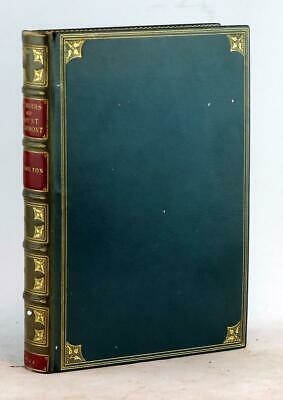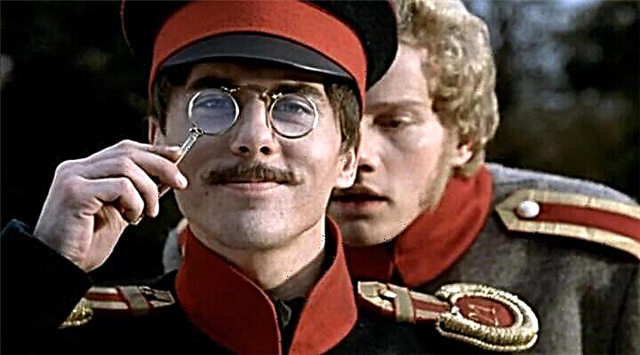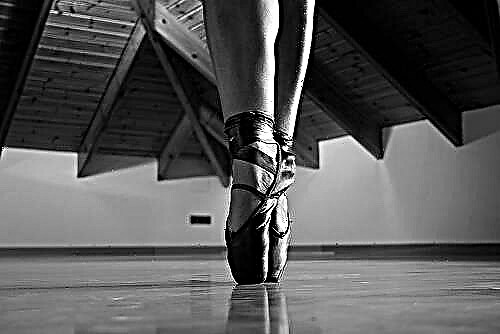: The Great Patriotic War. The young lieutenant at the head of the sabotage group is sent to destroy a large German base. The mission ends in failure, the lieutenant dies, not following the order.
Chapters One - Two
A group of Lieutenant Ivanovsky went to the deep German rear. It was about sixty kilometers to go, and it was necessary to catch it before dawn. In addition to Ivanovsky and the thin, awkward foreman Dubin, there were eight soldiers in the group: the silent infantry-laden infantry sergeant Lukashov, the assistant platoon commander; shooter Khakimov; a young sapper Sudnik and his senior partner, the forty-year-old Sheludyak; tall handsome Krasnokutsky; silent Hare, fighter Kudryavtsev and artilleryman Pivovarov, the youngest and weakest.
The group had to go skiing - this is the only way to walk sixty kilometers in one November night. Ivanovsky did not have time to check everyone, and now doubted the ability of the overweight Sheludyak to ski. But it was too late to change anything. The group set off.
Half a kilometer to the floodplain of a small river, the soldiers had to crawl in a plastunsky way - the Germans were so close that they could see them, and there was no one to cover the group. At the floodplain itself, the detachment noticed, the sky was lit by rockets that flew from the direction where the fighters were moving.
Ivanovsky, leading a very stretched group, crossed the ice to the other side of the river. Here, very close by, behind a small hillock was the first German trench, so it was necessary to behave more quietly. Suddenly, a rifle shot rang out from behind. The Nazis heard him and started firing at the detachment, illuminating the river with dazzlingly bright rockets.
The wound of Kudryavtsev. Lieutenant Ivanovsky had to send the wounded man back to his home with Sheludyak, who was too slow. They were soon discovered and started to be shot from a machine gun. Ivanovsky’s detachment during this time managed to hide “in a sparse low-growing shrub.” The lieutenant was grateful to Sheludyak for helping the detachment at the cost of his own life, although he had recently believed that he had saved him from certain death by sending him back.
It turned out that the unreliable Sudnik rifle had fired, accidentally jumping off the fuse. Ivanovsky realized that he did not foresee too much, embarking on such a dangerous campaign, but it was too late to regret it.
The war is surprisingly blind to people and far from deservingly manages their lives.
Putting the squad on skis, Ivanovsky moved forward. Moving evenly along the virgin snow at the head of the detachment, the lieutenant recalled how he left the encirclement. He wandered with his people for a long time through the dense Smolensk forests, now and then bumping into the Germans, until he met a group of scouts under the command of Captain Volokh, who was also surrounded. Together, they searched for several days the front line, which rolled far east, and once stumbled upon a "large German warehouse" of ammunition.
Chapters Three - Fifth
Ivanovsky stopped at the fishing line, which was not on the map. While the lieutenant was thinking which way to get around him, tired soldiers gathered around him - all but the foreman Dubin and Zaitsev. Time was running out, the lieutenant could not wait for the laggards and set off to bypass the fishing line.
Ivanovsky was careful. Captain Volokh died in an attempt to destroy the warehouse, accidentally stumbled upon a sentry in a snowstorm, and the lieutenant, feeling responsibility for others, tried to "act a hundred times more cautiously." There was no lagging foreman. Ivanovsky "had various bad assumptions," but he tried to "maintain confidence that Dubin would catch up."
A blizzard began.Behind the line and the floodplain, the detachment stumbled upon a farm or village house in the outskirts. Even through the blizzard they were noticed, they started firing and the lieutenant was shot in the hip. Khakimov was seriously wounded in the back and stomach. The unconscious soldier had to be dragged along in improvised drags, which greatly slowed down the detachment.
Ivanovsky did not tell anyone about his wound - he understood that now he should be "for others the embodiment of absolute confidence." Lukashov offered to leave Khakimov near some village, but Ivanovsky could not do this.
The duty of the commander and man imperiously dictated to him that the fate of this unfortunate, while he was alive, could not be separated from their common fate.
The highway, which should have been crossed in the dark, separated from the fighters' goal, but now it became obvious that they would not have time before dawn. Lukashov assumed the role of foreman in the detachment, and the lieutenant has not yet figured out whether this is good or bad.
Moving on loose snow, Ivanovsky, who was tired and tired, recalled how he, having left the encirclement, tried to report to the headquarters about the enemy warehouse, but they treated the lieutenant “without special attention”. Ivanovsky heard the commander in chief, a strict elderly general, whom the lieutenant was afraid of.
By order of the general, in three days they gathered a sabotage group and sent it to the German rear with the order to destroy the warehouse. Now Ivanovsky was recalling the paternal parting words of the general and was "ready for anything, just to justify his human heartiness."
Chapters Six - Eighth
Dawn found a squad in a bare field near the highway. The movement has already begun on the road - trucks, horse-drawn carts, squat cars with German authorities - and it became impossible to cross it. The soldiers took refuge in an old anti-tank ditch that led to the highway and continued behind it. Dubin and Zaitsev never caught up with them. Lukashov feared that the foreman surrendered to the Germans and led them along the trail of the detachment, but Ivanovsky did not want to believe that the calm, thorough Dubin was capable of betrayal.
Having rested and left behind Lukashov, Ivanovsky decided to go on reconnaissance. As partners, he unexpectedly chose the frail Pivovarov. They waited indefinitely, while the German signalmen, climbing the roadside poles, established a connection. Finally, the Germans left, and Ivanovsky and Pivovarov were able to cross the highway. After skiing, they headed to the base.
On the way, Ivanovsky "felt an attack of some unpleasant, ever-increasing, almost irresistible anxiety." The lieutenant’s premonition was justified: having entered the grove where the base was, Ivanovsky discovered that it had disappeared. In the two weeks since the unsuccessful sabotage, the Germans managed to move it closer to the front line.
There was no deception, there was a war, which means that all its tricks worked, all the possibilities were used - including the time, which in this case worked in favor of the Germans ...
“There was no base, but the order to destroy it remained in force,” and Ivanovsky firmly decided to fulfill it. He could not return with nothing to the general who believed in him.
Upon returning, Ivanovsky discovered that the group was caught up by Dyubin and Zaitsev. They lagged behind due to the fact that Zaitsev broke the ski. The lieutenant said that the base had disappeared, and Lukashov immediately and unkindly doubted whether it was at all. Having cut it off, Ivanovsky decided that the detachment, together with the unconscious Khakimov, would return to his own, and he would try to find a base.
First, Ivanovsky wanted to take a reliable foreman Dubin as a partner, but then Sergeant Lukashov would become the senior in the group, and this lieutenant did not want to. And Ivanovsky again chose Petya Pivovarov, without realizing what influenced his choice. With Dubin, the lieutenant handed a note to the chief of staff, in which he announced his intention to comply with the order.
Chapters Nine - Eleventh
Crossing the highway again, Ivanovsky and Pivovarov went skiing and set off in search of a German facility that could be destroyed.The lieutenant did not consider himself guilty, but "unjustified trust confused him the most." Ivanovsky knew well what it means to not justify trust and spoil a good opinion of himself.
At the age of fourteen, Igor Ivanovsky lived "in Kublichi, a small quiet place near the Polish border, where his father served as a veterinarian in the border guard office." Igor was very fond of horses and spent all his free time from school at the stable. He became an assistant to the squad commander Mityaev, a middle-aged, slow-moving Siberian man who was drafted into the army by mistake.
Between Igor and Mityaev established a special trusting relationship. The squad commander often defended the boy in front of his father, who did not live with his wife, loved to drink, and did not indulge his son.
Once the commandant brought a boat. All summer she lay on the shore, blistering eyes to small-town boys who wanted to ride on it. The friends knocked Igor to steal the boat and sail to the other side of the lake. The boys chose the day when Mityaev, who fully trusted Igor, was on duty, sailed to the middle of the lake and found that the boat had dried up and was passing water. The vessel sank, and the friends barely reached the shore.
The boat began to search. Mityaev vouched for his favorite, but Igor could not stand it, admitted everything and showed the place where the boat sank. From this day until the very demobilization, Mityaev did not say “not a single word” to Igor. The boy was not offended - he knew that "he deserved this contempt."
Soon Ivanovsky came across a bumpy road leading from the highway and walked along it. The road led to the village, over one of which was a long antenna sticking out. Apparently, there was a large German headquarters. Deciding to verify this, the lieutenant made his way into the village and stumbled upon a German, whom he had to kill.
The fascists became alarmed, the shooting began, and Ivanovsky was wounded again, but this time heavily, in the chest. Pivovarov managed to get him out of the village. The wound drastically changed Ivanovsky’s plans. Now they had to get to a village free of Germans and take refuge there.
The partners walked for a long time in the snow, without the skis that they had thrown during the flight. In the dead of night, they came across a bathhouse standing on an outskirts and took refuge there. In the morning, it turned out that the village near which the bathhouse stood was occupied by the Germans. Ivanovsky was ill - his chest hurt, breathing with difficulty. He tried to maintain endurance, by an effort of will “to keep his shaky consciousness in himself”, because he knew that if the Germans found them, he would have to fight back.
Living through the destruction of the enemy - apparently there was no other way out in the war.
Sitting in the bathhouse had all day. The partners were talking quietly. Pivovarov said that he was from Pskov. They lived without a father, their mother worked as a teacher and did not have a soul in their only son. Pivovarov understood that he was most likely to be killed, and his mother really felt sorry for him.
The lieutenant understood him - he also felt sorry for his father, even such as the loser Ivanovsky. Mother Igor did not remember - there was some kind of family drama connected with her that was not told to him. Igor did not have time to see his father before the war and did not even know if he was alive. However, he experienced separation from his father more easily than separation from a girl, his Yaninka.
Ivanovsky regretted the skis left near the headquarters village. When it got dark, he sent Pivovarov for them. At the same time, he asked him to find out if the headquarters actually stood in the village.
Left alone, half-forgotten, Ivanovsky began to recall Yaninka. After graduating from the military school, Igor received "an appointment to the army, whose headquarters was located in Grodno." He met Yaninka at the station. The girl was in trouble - she was robbed at night on the train when she was returning home to Grodno, from Minsk, where she was visiting with her uncle. Igor bought a girl a ticket and helped get home.
All night they walked around Grodno. Ioannina proudly showed Igor a small but ancient city on the banks of the Nemunas, which she loved very much. For Igor, this night was the happiest in life.And in the morning the war began, and he no longer saw Yaninka.
Chapters Twelve - Thirteen
Ivanovsky woke up when he heard shots flying from the side where Pivovarov had gone. Long lines were heard - it was Pivovarov who was firing from the machine gun that the lieutenant had given him with him. Ivanovsky understood that he could not help his partner, but he also could not sit out in the bathhouse. He wished he had sent a fighter to such a disastrous cause. After waiting another couple of hours, Ivanovsky gathered his last strength and followed the trail of Pivovarov.
Falling, rising and waiting for bouts of weakness, in the dead of night Ivanovsky reached the place where the murdered Pivovarov lay. Judging by the tracks, the Germans shot him point blank from machine guns. The "extraordinary emptiness" took hold of the lieutenant, only somewhere inside resented resentment at such an unsuccessful end.
Ivanovsky sat down next to Pivovarov, realizing that he would soon die from cold and wounds, but suddenly he heard the roar of the engines and remembered the road that led them to the headquarters village. The lieutenant still has an anti-tank grenade. He decided to get to the road and blow up the car of a German officer. This was the last goal in his life.
First, Ivanovsky tried to go, then crawled. Soon a cough began, then blood began to flow from the throat. Now the lieutenant tried not to cough - he had to get to the road. Every now and then losing consciousness, Ivanovsky overcame a roadside ditch and crawled onto the roadway.
With great difficulty, the lieutenant prepared a grenade. Now it was necessary to live until dawn, wait until the first cars appeared. He endured and dreamed of how he would take up a luxury car with a general or colonel. The lieutenant believed that his efforts were not in vain, but his painful death, one of many, would lead to "some kind of result in this war."
None of the human torment is meaningless in this world, especially soldier’s torment and soldier’s blood spilled on this unpleasant, frozen, but their own land.
Finally, it dawned and on the road appeared a cart pulled by a pair of horses and loaded with a straw, driven by two Germans. Ivanovsky was unlucky again, but he still firmly decided to fulfill his soldierly duty. Huge bases, evil SS men and arrogant generals will go to others;
It turned out even worse - the cart stopped at a distance, only one German approached Ivanovsky and shot him. Dying, the lieutenant rolled onto his back and released a grenade.
When the donkey was raised by the snow, Ivanovsky was not on the road, only a funnel blackened and an overturned cart was lying on its side, a German corpse lay behind the ditch, and the surviving messenger ran to the village.

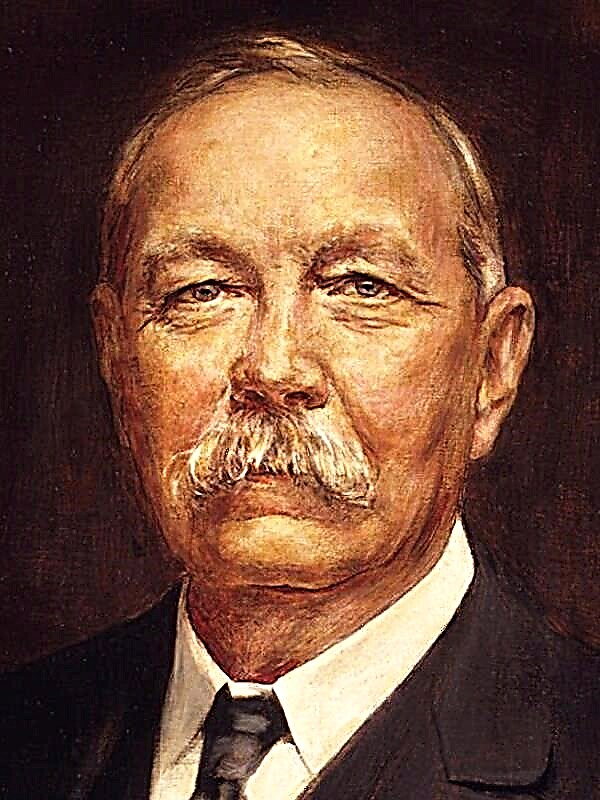

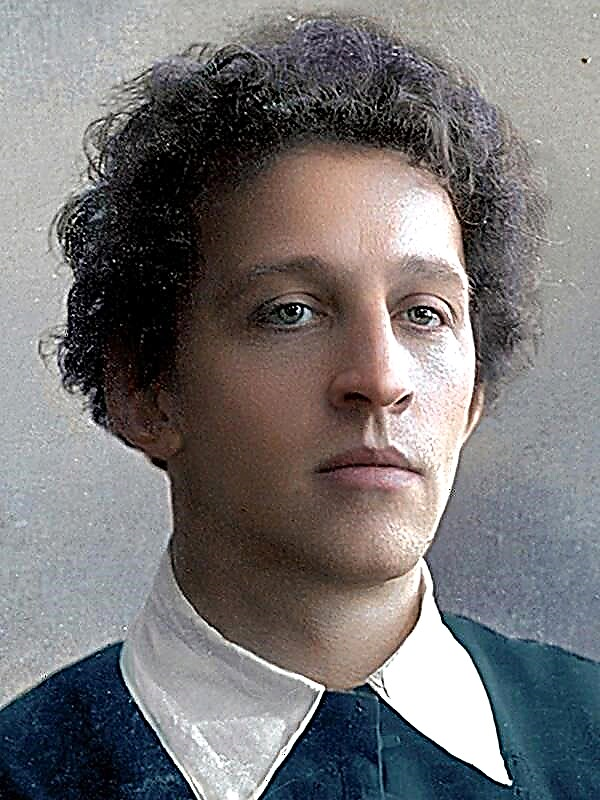
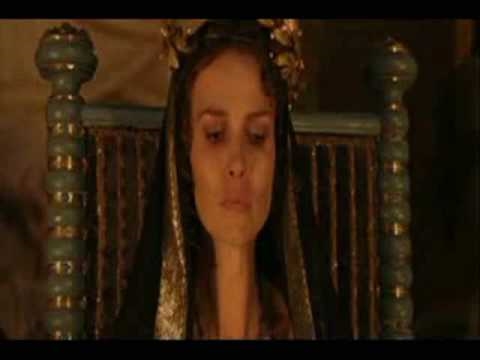
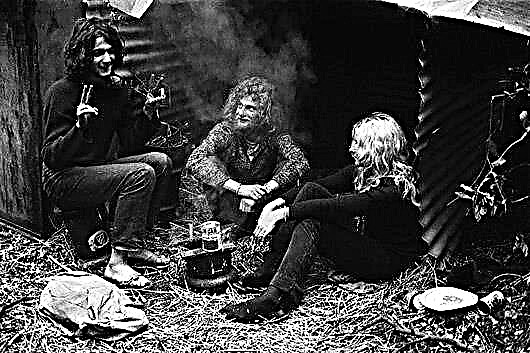
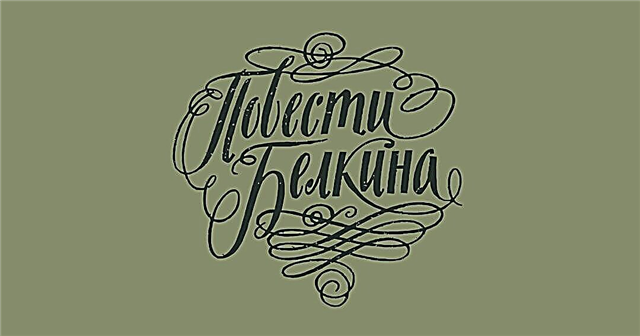
 Misconceptions of the heart and mind
Misconceptions of the heart and mind
